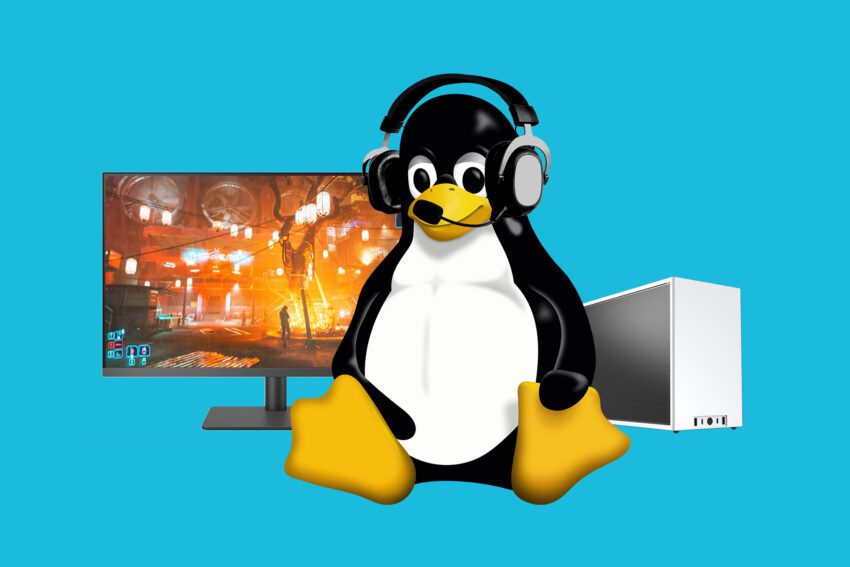
screw it i m installing linux This year marks a pivotal moment for Linux enthusiasts and gamers alike, as the operating system gains traction in the gaming community.
screw it i m installing linux
The Rise of Linux in Gaming
For years, Linux has been regarded as a niche operating system, primarily favored by developers, tech enthusiasts, and those seeking an alternative to mainstream platforms. However, recent developments have positioned Linux as a viable option for gamers, challenging the long-standing dominance of Windows in the gaming arena. With the advent of powerful tools and support from major companies, the landscape is shifting, and many are now considering making the switch.
Valve’s Impact on Linux Gaming
One of the most significant catalysts for this change has been Valve Corporation’s commitment to Linux gaming. The company has invested considerable resources into making Windows games accessible on Linux through its Steam platform. The introduction of the Steam Deck, a handheld gaming device running on a Linux-based operating system, has been a game-changer. The Steam Deck has demonstrated that Linux can handle demanding gaming titles effectively, showcasing impressive performance and compatibility.
Valve’s Proton, a compatibility layer that allows Windows games to run on Linux, has also played a crucial role. By translating Windows API calls into Linux-compatible calls, Proton has enabled gamers to access a vast library of titles that were previously unavailable on Linux. This has not only expanded the gaming options for Linux users but has also encouraged developers to consider Linux as a viable platform for their games.
Performance Improvements
Recent benchmarks have shown that gaming on Linux can yield performance improvements compared to Windows. For instance, the Fedora-based distribution Bazzite has been reported to run Windows games with higher frame rates than their native Windows counterparts. This is particularly noteworthy for handheld gaming devices that traditionally struggled with performance issues when running Windows.
The ability to achieve better performance on Linux can be attributed to several factors, including optimized drivers, efficient resource management, and the lightweight nature of many Linux distributions. As a result, gamers are increasingly finding that they can enjoy a seamless gaming experience without the overhead associated with Windows.
Exploring Linux Distributions for Gaming
Choosing the right Linux distribution is crucial for a successful gaming experience. While there are numerous distributions available, some have emerged as favorites among gamers due to their performance, ease of use, and community support.
Popular Gaming Distributions
- SteamOS: Developed by Valve, SteamOS is designed specifically for gaming. It provides a streamlined interface and is optimized for the Steam platform, making it an excellent choice for gamers looking to dive into Linux.
- Pop!_OS: Created by System76, Pop!_OS is known for its user-friendly interface and robust performance. It includes support for gaming hardware and is optimized for gaming, making it a popular choice among gamers transitioning to Linux.
- Ubuntu GamePack: This distribution comes pre-loaded with a variety of games and gaming tools, making it an attractive option for those new to Linux gaming. Its extensive software repository ensures that gamers can easily find and install their favorite titles.
- Bazzite: As mentioned earlier, Bazzite is a Fedora-based distribution that has garnered attention for its impressive gaming performance. Its focus on performance and compatibility makes it a strong contender for gamers.
Community Support and Resources
The Linux gaming community has grown significantly in recent years, with numerous forums, subreddits, and online groups dedicated to helping users navigate the transition to Linux. These communities provide valuable resources, including guides, troubleshooting tips, and recommendations for optimizing gaming performance.
Additionally, many game developers are beginning to recognize the importance of supporting Linux. As more titles are released with native Linux support, the ecosystem continues to expand, making it easier for gamers to find and enjoy their favorite games.
Challenges and Considerations
While the prospects for Linux gaming are promising, there are still challenges that potential users should consider before making the switch.
Game Compatibility
Despite the advancements made in compatibility layers like Proton, not all games run flawlessly on Linux. Some titles may experience performance issues, graphical glitches, or may not run at all. It is essential for users to research the compatibility of their favorite games before committing to a Linux distribution.
Websites like ProtonDB provide valuable insights into how well specific games perform on Linux, offering user-generated reports and performance metrics. This resource can help gamers make informed decisions about which titles to play on their new operating system.
Hardware Compatibility
Another consideration is hardware compatibility. While many components work seamlessly with Linux, some manufacturers do not provide official drivers for their products. This can lead to challenges in getting certain hardware, such as graphics cards or peripherals, to function correctly. Users should verify that their hardware is supported by the chosen Linux distribution and look for community-driven solutions if issues arise.
The Future of Linux Gaming
As more gamers explore the potential of Linux, the future looks bright for this operating system in the gaming sector. The ongoing support from major companies like Valve, coupled with the growing community of developers and users, is paving the way for a more inclusive gaming environment.
Potential Developments
Looking ahead, several developments could further enhance the Linux gaming experience:
- Increased Native Support: As more developers recognize the demand for Linux gaming, we can expect to see an increase in native Linux support for popular titles. This would eliminate many of the compatibility issues that currently exist.
- Enhanced Performance Tools: The development of new tools and optimizations for Linux gaming could lead to even better performance, making it a more attractive option for gamers seeking high-quality experiences.
- Broader Hardware Support: As Linux gains popularity, hardware manufacturers may be more inclined to provide official drivers and support for their products, reducing compatibility issues for users.
Conclusion
The decision to install Linux on a gaming PC is no longer a leap of faith but a calculated choice backed by a growing ecosystem of support and performance. With Valve’s commitment to Linux gaming, the emergence of powerful distributions, and a vibrant community, 2026 could indeed be the year of Linux on the desktop for many gamers. As the landscape continues to evolve, the possibilities for Linux gaming are becoming increasingly exciting, making it a compelling option for those looking to break free from the constraints of traditional operating systems.
Source: Original report
Was this helpful?
Last Modified: November 19, 2025 at 6:41 pm
5 views















